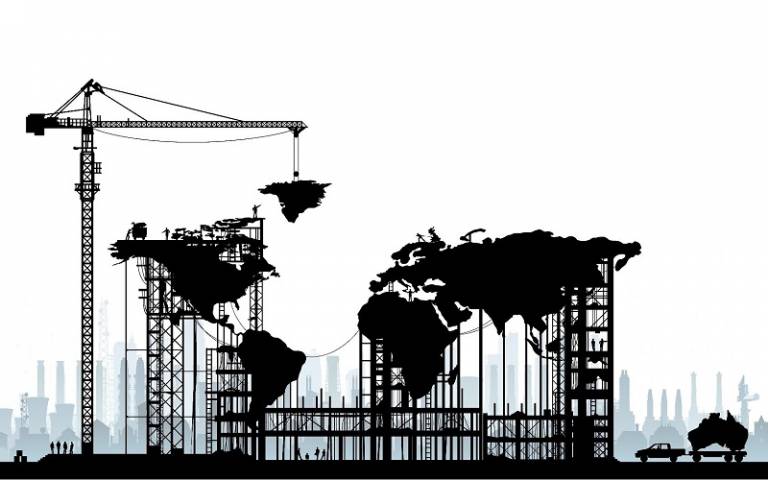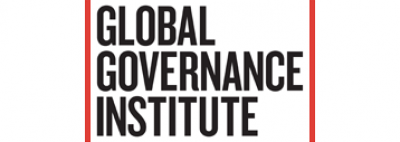UCL Global Governance Institute: A Year in Review
15 August 2016
Dr Tom Pegram, Senior Lecturer in Global Governance and Deputy Director of the GGI, reflects on the Institute’s activities and achievements in 2015-16.

At a Global Governance Institute (GGI) public lecture in June with Mervyn King, former head of the Bank of England, Lord King reflected on the troubled state of global economic governance against a backdrop of "radical uncertainty", meaning the kind of uncertainty that statistical analysis cannot model.
Radical uncertainty may be the motif of our times.
This year has seen some extraordinary highs and lows in global politics. From the dispiriting retreat from European cooperation symbolised by Brexit, to the extraordinary breakthrough on climate change in Paris last December, these are deeply uncertain and contradictory times.
Whether the challenge is climate change mitigation, health pandemics, financial regulation or terrorism, we need more global governance, not less. Yet despite rapid globalisation and the proliferation of these cross-border threats, global governance is failing to find solutions and, perhaps, is even in retreat.
It is imperative then that we make progress in understanding blockage and ways through. In 2015-16, in collaboration with partners within and outside UCL, the GGI has sought to make a major intellectual and policy contribution to this endeavour.
Highlights from our public lecture series this year have included interventions by policy-makers at the coalface of multilateral diplomacy, such as Catherine Ashton, former First Vice Present of the European Commission, and Elizabeth Dibble, the US Deputy Chief of Mission in London.
We were fortunate to be joined in 2015-16 by some of the world's leading critical thinkers on global governance, including Jack Donnelly, David Kennedy and Saskia Sassen. Daniel Franklin, Executive Director of The Economist, led us through an entertaining (and prophetic) preview of the year to come in February and John Knox, UN Special Rapporteur on Human Rights and the Environment, closed our 2015-16 events programme on a cautiously optimistic note in the aftermath of the Paris Agreement.
This year, the GGI also made its mark in the world of global governance research, convening world-leading scholars for an international symposium in November. The event served as a launching pad for UCL's call for a "third generation" of global governance research. This coming year, we will host the inaugural meeting of an International Global Governance Research Network, with partner universities from across Europe and beyond. Our workshops have also brought researchers and policy-makers together, with outcome policy briefs forthcoming on Global Drug Policy and Public Security and Understanding the Threat of Climate Change to Human Rights.
All of these activities would not be possible without the inspiration, support and collaboration of our colleagues at SPP and from across UCL. We are particularly grateful to our first cohort of GGI Thematic Leaders, Jason Dittmer (global security), Ilan Kelman (global environment), Avia Pasternak (global justice) and Stephen Smith (global economy), all of whom have done so much to advance the GGI mission over the past two years and will be stepping down this November. It has also been an immense pleasure to build on and advance our collaboration with a brilliant cohort of students on our MSc in Global Governance and Ethics programme, as well as their affiliate society.
In these unsettled times, a huge question mark hangs over the future trajectory of global governance as we move into 2016-17. On a positive note, uncertainty is also opening up new spaces for experimentation, even if believable coherent alternatives to old governance models are yet to emerge. The Institute will continue to be at the forefront of thinking on this perhaps most vital building block of our future civilisation, and we hope you will join us.
 Close
Close


